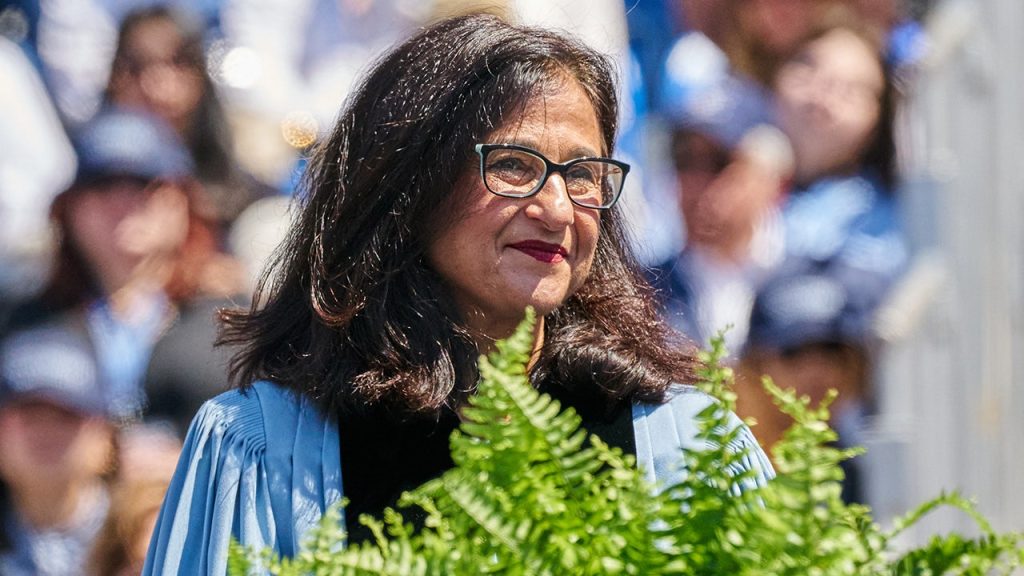The President of Columbia University, Minouche Shafik, issued an apology to students after the cancellation of the main university commencement due to security concerns arising from anti-Israel protests. Shafik expressed regret for the disappointment felt by graduating students as a result of the cancellation, attributing it as one of many tough decisions made throughout the year. The university announced that the traditional commencement ceremony would be replaced with smaller class days and school-level ceremonies in light of security concerns following a wave of anti-Semitic protests that led to over 100 arrests.
Shafik acknowledged the strain that the anti-Israel protests had on the campus community, particularly its Jewish members. She highlighted the conflict between the rights of pro-Palestinian protesters and the impact their protests had on the Jewish community, making the atmosphere particularly tense. Shafik emphasized the importance of asking difficult questions in the aftermath of the protests, such as finding ways to uphold norms and ensure the safety of all individuals on campus without resorting to police involvement. The President recognized the challenges faced by the graduating class, noting that their university experience had been significantly impacted by COVID-19 and conflict.
The decision to cancel the graduation ceremony was met with criticism from some students, who felt that the university was capitulating to protesters. Some students expressed concerns that the cancellation indicated that “inmates were running the asylum,” implying that the university was giving in to the demands of protesters at the expense of traditional events. Despite the backlash, Shafik defended the decision as a necessary measure to ensure the safety of students and faculty amid escalating tensions on campus. The university’s focus shifted to conducting smaller, more secure events to celebrate the graduating class in a safe environment.
Looking towards the future, Shafik urged graduates to reflect on the challenging circumstances they faced during their time at the university, from the impact of COVID-19 to the conflict surrounding anti-Israel protests. She emphasized that the graduating class was well-positioned to become future leaders who could navigate a complex and changing world. Shafik expressed confidence in the resilience and adaptability of the students, noting that they had been shaped by significant events that heightened their awareness of global issues and the interconnectedness of the world.
In her op-ed, Shafik acknowledged the unique and divisive nature of the anti-Israel protests that took place on campus, underscoring the need for dialogue and understanding among different groups. She emphasized the importance of finding common ground and establishing norms to ensure a safe and inclusive environment for all members of the university community. The President’s message conveyed a sense of empathy towards graduating students who had to endure disruptive events and challenges throughout their time at Columbia University, expressing regret for the impact it had on their university experience.
As the university navigates the aftermath of the anti-Israel protests and works towards addressing security concerns, Shafik called on university leaders to engage in difficult conversations and seek solutions that prioritize the safety and well-being of all individuals on campus. She recognized the complexity of the issues at hand and the need for collaborative efforts to create a more harmonious and respectful environment for students, faculty, and staff. By reflecting on the events that unfolded during the academic year, Shafik encouraged graduates to harness their experiences to become future leaders who could positively influence the world amidst uncertainty and conflict.


